Docker Certification
The Docker Certified Associate test and this practical Docker certification course are compatible. In this Docker course, you will learn about the fundamentals of Docker, including Docker Hub, Docker Compose, Docker Swarm, Dockerfile, Containers, Docker Engine, Docker Images, Docker Network, Docker Daemon, and Docker Storage.
Overview
A strong foundation for the official Docker Certified Associate test is provided by the DCA Certification Training course. Built from the bottom up, the Docker training curriculum aims to educate novice users on the nuances of the Docker containerization technology. The foundational knowledge of Docker is covered in the Docker Certification course before moving on to more complex subjects like Docker Compose, Docker Swarm, network and security management, and utilizing Docker Enterprise’s DTR (Docker Trusted Registry) and UCP (Universal Control Panel).
Who should go for this Docker Training Course?
- Professionals aspiring to clear the Docker Certified Associate exam
- Professionals keen on advancing their career as DevOps Engineers
- Individuals looking to establish their credibility and value in the market as experienced Docker practitioners
- Principal Software Engineers
- Cloud Professionals
- Software Developers
- Site Reliability Engineers
- Technical Leads
What are the benefits of Docker Training Course?
- Recognition for your Docker skills with an official Docker credential
- Digital certificate and use of the Docker Certified Associate logo
- Online verification of Docker Certified status by potential employers
- Exclusive access to the Docker Certified professional network on LinkedIn and invites to certified-only events
Our Package
- Containerization
- History of Containers
- Namespaces and Cgroups
- Containers vs. Virtual Machines
- Types of Containers
- Introduction to Docker
- Docker Architecture
- Container Lifecycle
- Docker CE vs. Docker EE
- Docker Engine
- Configuring Logging Drivers
- Docker Terminology
- Port Binding
- Detached vs. Foreground Mode
- Docker CLI
- Docker Exec
- Restart Policy
- Dockerfile
- Dockerfile Instructions
- Build Context
- Docker Image
- Docker Registry
- Docker Storage
- Types of Persistent Storage
- Volumes
- Bind Mounts
- tmpfs Mount
- Storage Drivers
- Device Mapper
- Docker Clean Up
- Docker Compose
- Docker Swarm
- Docker Service
- Service Placement
- Rolling Update and Rollback
- Docker Stack
- Docker Networking
- Network Drivers
- Bridge Network
- Overlay Network
- Host and Macvlan
- Docker Security
- Docker Content Trust
- Securing the Docker Daemon
- Docker Enterprise
- Universal Control Plane (UCP)
- UCP Architecture
- Access Control in UCP
- Docker Trusted Registry (DTR)
- Monitoring using Prometheus
- Kubernetes Core Concepts
- Kubernetes Common Commands
- Pods
- Deployments
- Labels, Selectors and Annotations
- Services
- Persistent Volumes and Persistent Volume Claims
- Storage Classes
Upcoming Batch
April 20th (Weekends)
FRI & SAT (4 Weeks)
08:30 PM to 01:00 AM (CDT)
April 18th (Weekdays)
MON – FRI (18 Days)
10:00 AM to 12:00 PM (CDT)
Docker Certification FAQs
Docker Certifications validate technical knowledge with an industry-recognized credential. Our certifications recognize technical skills on the Docker platform.
You must earn a passing score via a proctored exam to earn a Docker Certification. Upon receiving a passing score, you will receive your certification credentials.
Your Certification will be valid for 2 years. You will be required to update your certification every two (2) years.
The pre-requisites for this Docker course include: Good Knowledge and Hands-on experience with Linux. You don’t need to be a wizard at the command line, but you should be familiar with how to open your favorite shell or terminal, and run basic commands in that environment. To refresh your skills, you will get the “Linux Fundamentals for Docker” Self-paced modules as pre-requisites in your LMS when you enroll in Docker Certified Associate Training.
Any system with 4GB of RAM and a decent HDD with the latest version of Windows, Linux, or MacOS is compatible. Free Tier GCP account will be used to perform all the demos. Edureka will help you set up the required software. The Installation Guides to set up the environment is available on the LMS.

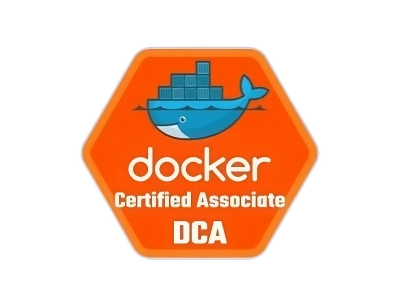
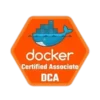
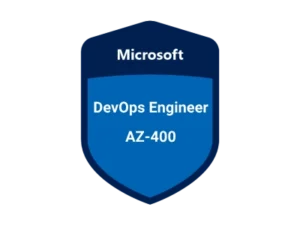
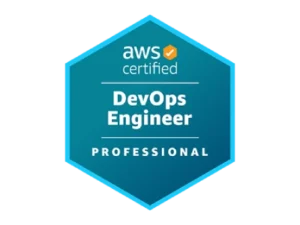
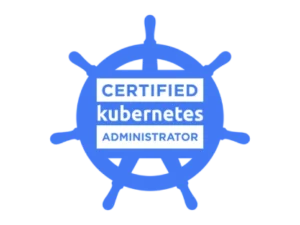

Reviews
There are no reviews yet.